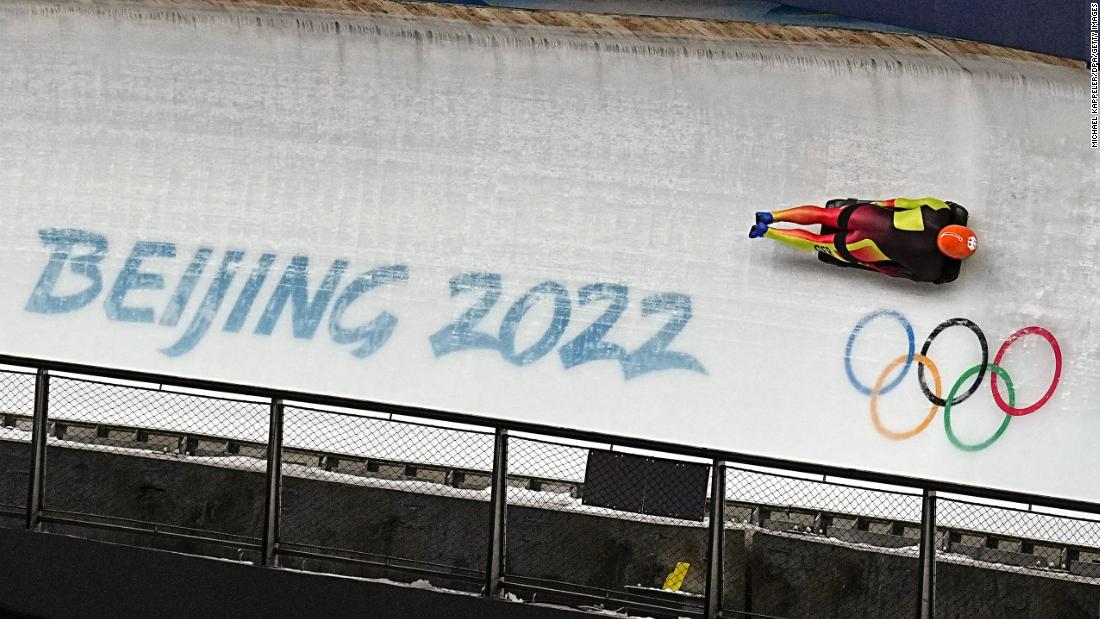Your top Winter Olympics 2022 questions, answered
So here are answers to some of the burning questions you might have about the 24th Winter Games.
How many athletes compete in the Winter Olympics?
From fan favorites like ice hockey and snowboarding to new events such as women’s monobob and freestyle skiing aerials, there are plenty of opportunities to impress.
There are 91 delegations competing for 109 gold medals across seven sports in Beijing.
Whether it’s going as fast as you can or performing the most extravagant maneuver on ice possible, it’s going to be one hell of a show.
Are athletes allowed to make political statements?
The Olympics has witnessed some powerful moments when politics rather than sports take center stage.
Whether athletes competing in Beijing will use their platform to make political statements remains to be seen.
What is skeleton?
With its roots in sleighing, athletes participate on the same track across two days, getting four runs each. The competitor with the fastest combined time wins the event.
After British and American holiday goers constructed the first toboggan run in 1882 in Davos, Switzerland, a new steel sledge was built 10 years later — which became known as the skeleton.
It fell in and out of the Olympic program for a number of years, before it was reintroduced at the Salt Lake City 2002 Winter Olympics.
There will be just six medals available across two events at Beijing 2022, including the men’s singles and the women’s singles.
Great Britain and the United States are the two main frontrunners in the skeleton event, having earned 11 medals between them.
How many venues does Beijing 2022 have?
The Winter Games will be held in 12 different venues, varying in shapes, sizes and capacities.
There are eight new venues constructed specifically for the 2022 Games, with four existing ones in use too.
Competition will be held across three different clusters, with Beijing hosting the indoor events, Yanqing hosting the sliding sports while the mountains of Zhangjiakou host the freestyle skiing and snowboarding events, ski jumping, biathlon and cross-country.
Here is a list of all the venues that will see athletes duke it out in.
New venues:
- The Speed Skating Oval: speed skating, 11,950 capacity
- The Big Air Shougang: big air, 4,912 capacity
- National Alpine Skiing Centre: alpine skiing, 4,800 capacity
- National Sliding Centre: bobsleigh, skeleton, luge, 7,500 capacity
- Genting Snow Park: Park A, snowboard, freestyle skiing, ski cross, 1,774 capacity; Park B, halfpipe and slopestyle, 2,550 capacity; Park C, aerials and moguls, 1,597 capacity
- National Cross-Country Skiing Centre: cross-country skiing, Nordic combined, 6,023 capacity
- Zhangjiakou National Ski Jumping Centre: ski Jumping, Nordic combined, 6,000 capacity
- Zhangjiakou National Biathlon Centre: biathlon, 6,024 capacity
Existing venues
- National Aquatics Centre: curling, 3,759 capacity
- National Indoor Stadium: speed skating, 13,289 capacity
- Wukesong Sports Centre: ice hockey, 15,384 capacity
- Capital Indoor Stadium: short track speed skating, figure skating, 13,289 capacity
Where are the next Winter Olympics?
The next edition of the Winter Olympics will be held in in the Italian cities of Milan and Cortina d’Ampezzo in 2026. It will be the first Olympic Games featuring two host cities.
Chosen in 2019, the Italian beat out competition from a joint bid from Swedish cities Stockholm–Åre to play host to the biggest event in winter sports.
This will be the fourth Olympic Games hosted in Italy, 20 years after the 2006 Turin Winter Games, the most recent edition held in Italy.
For all the latest Sports News Click Here

